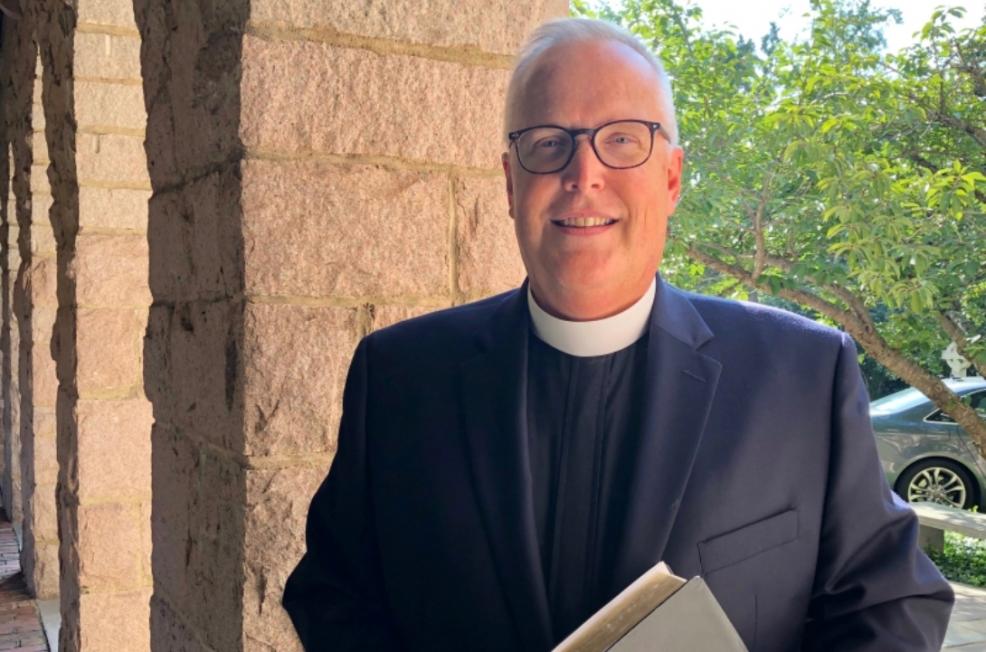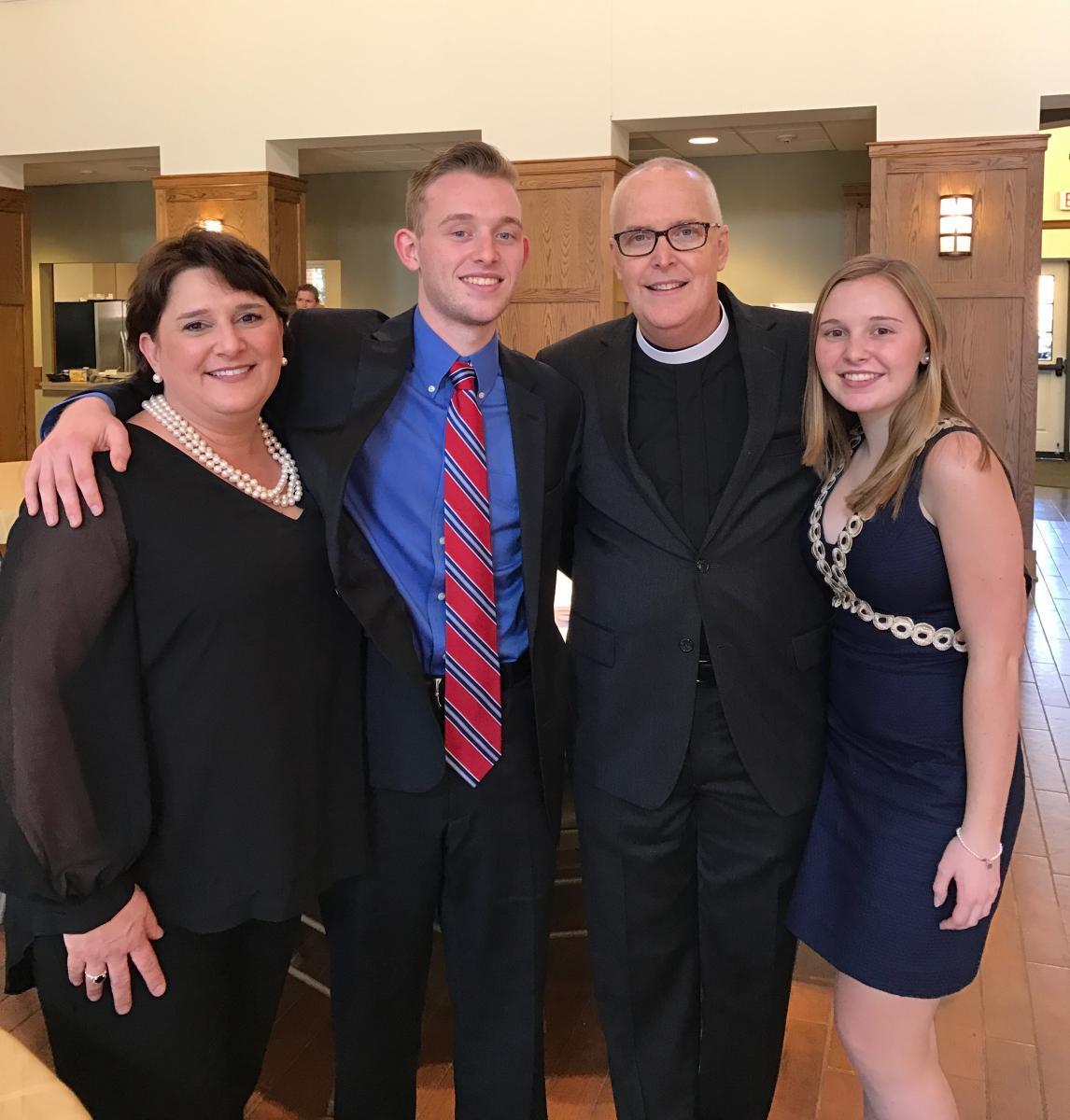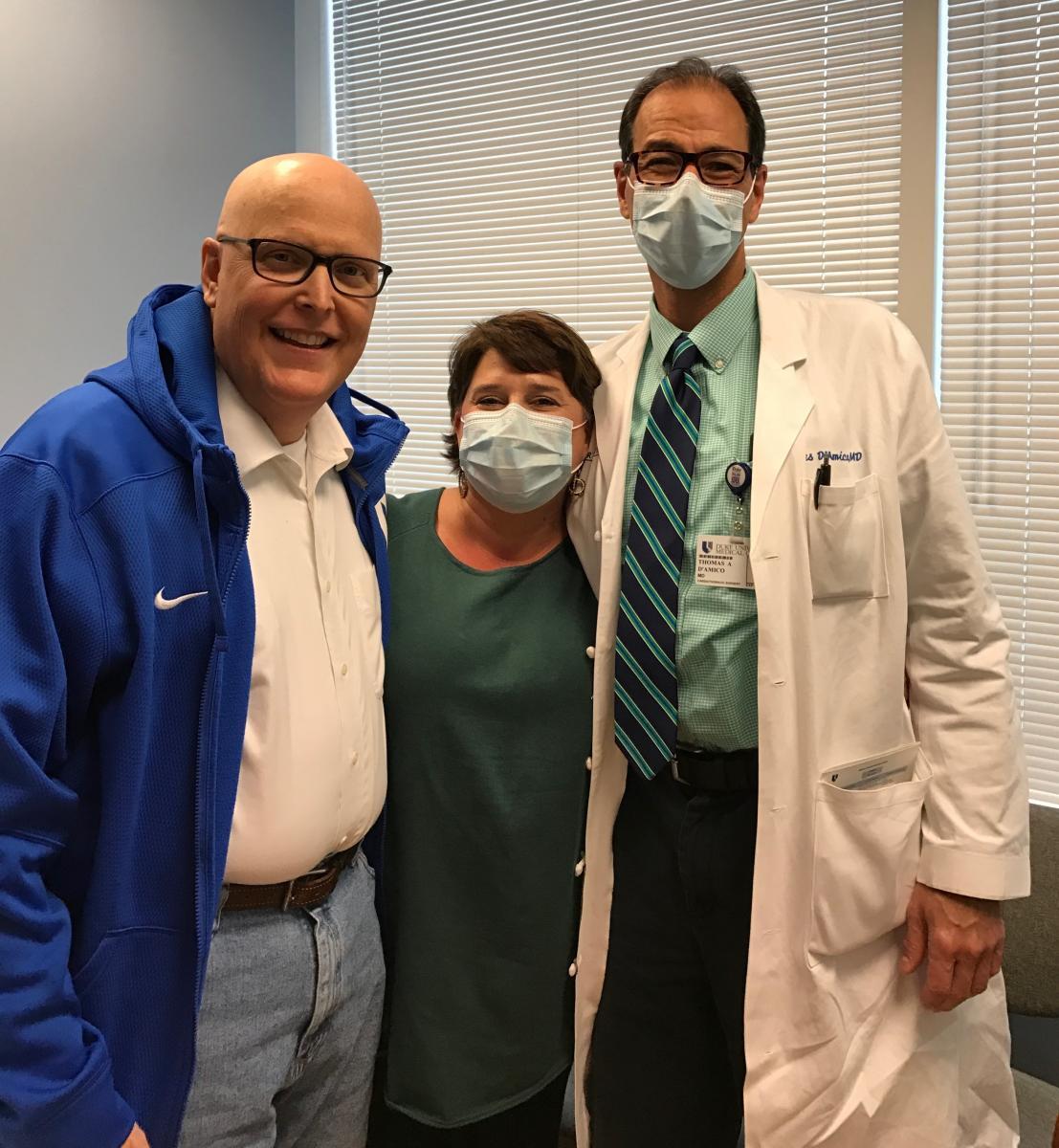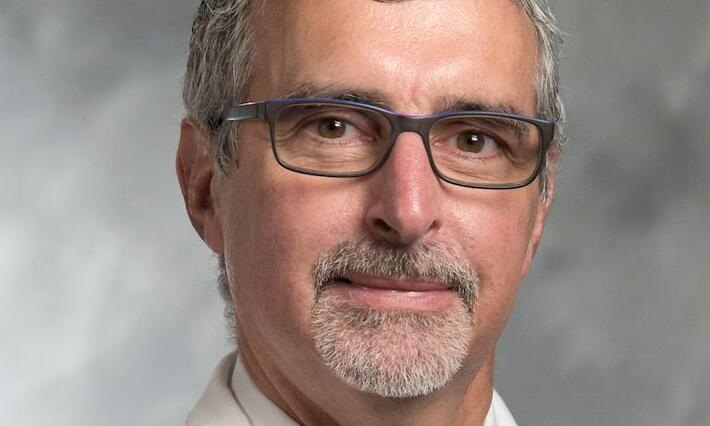Just after the New Year in 2017 Duke Cancer Institute physician assistant Scott Balderson, PA, was ordained a deacon in the Episcopal Church — a milestone in a long spiritual journey that's mission, he said, paired perfectly with his 20 years of clinical service to lung cancer patients.
“Deacons serve all people, particularly the poor, the weak, the sick, and the lonely,” said Balderson. “They are frequently ministers in the church who, just like me, still have their secular vocations. In fact, my work as a physician assistant in thoracic surgery is very much a part of my calling and ministry.”
The ordination almost didn’t happen. Balderson’s religious studies and work as the PA for Thomas D’Amico, MD, were temporarily interrupted three-and-a-half years ago when Balderson was diagnosed with stage-four diffuse large B-cell lymphoma, the most common type of non-Hodgkin lymphoma. He was 48.
He’d been traveling with his family to see friends over the Martin Luther King Day holiday weekend, when he picked up a really heavy suitcase, hurting his back in the process.
“The pain was really bothersome,” said Balderson “It got progressively worse over the next few weeks, but life around here (at work) is really busy, so I went on with things.”
He even made a scheduled trip to Baltimore for a review course for his PA boards re-certification test that was coming up. But while up north, the pain continued to get worse, and on the last day became unbearable, debilitating. He couldn’t see straight. He couldn’t function.
When his wife picked him up at the airport in Raleigh, Balderson had her drive him straight to the emergency department at Duke.
“At first it was a terrifying ordeal because with every test I had, the level of information got worse,” said Balderson, describing what it was like when physicians began to troubleshoot his problem. “They said I had back pain because I had a T7 compression fracture in my spine, which wasn’t good news. Then they said the fracture was caused by a cancerous tumor in my back. Then they said they found a couple more tumors. Then they identified some spots in my hips and legs. Those first days just went from bad to worse.”






